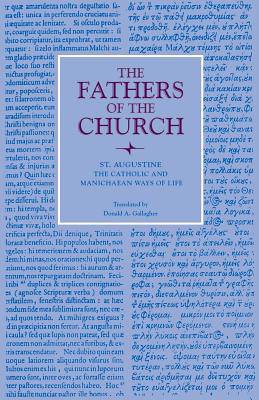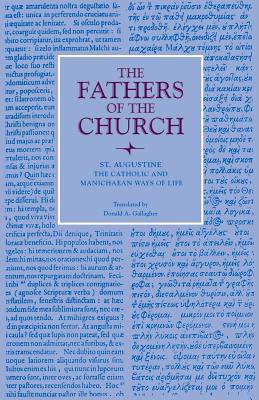
- Retrait gratuit dans votre magasin Club
- 7.000.000 titres dans notre catalogue
- Payer en toute sécurité
- Toujours un magasin près de chez vous
- Retrait gratuit dans votre magasin Club
- 7.000.0000 titres dans notre catalogue
- Payer en toute sécurité
- Toujours un magasin près de chez vous
Description
The Catholic and Manichaean Ways of Life is, like the Contra academicos (386) and the works of St. Augustine's later life against the Donatists and other heretics, the refutation of a redoubtable adversary whom he is determined to overthrow for the protection of his fellow Christians. Even a rapid glance at its contents is sufficient to show its character as a polemical work in which he contrasts one religious view of God, man and the world with another. In the first book, we are provided with a treatise on Christian morality, written, we must always bear in mind, by one received into the Church not two years before. It establishes that God is the Supreme Good. It shows the meaning of unions with him in charity. It explains the four cardinal virtues in terms of love, and particularly in terms of the love of God. Finally, it holds up for our admiration and emulation the Christian virtues of the religious, clergy, and laity. The way of life of the Catholic Church thus portrayed by Augustine embodies in his view a lofty ideal, but one that is livable by individuals in all states of life and in various stages of progress in virtue. The second book describes and refutes the teaching of the Manichaeans on the nature and origin of evil, their false ascetical practices, and their doctrines concerning the three symbols of the mouth, the hands, and the breast. In conclusion, Augustine denounces, on the basis of personal knowledge of first-hand reports, the scandalous conduct of the members of the Manichaean elect. Throughout this book, he is concerned, nor merely to expose the errors and excesses of the sect, including the shameful behavior and hypocrisy of certain of its leaders, but the absurdities and even depravity to which men are led by a way of life that is essentially unlivable. Whatever may be claimed for the austerities of the more sincere and ascetic members of the Manichaean sect, a religion that corrodes human nature and castigates its natural functioning as evil, cannot be good. Such is St. Augustine's ultimate judgment upon Manichaeanism, and he expresses it with eloquence and invective.
Spécifications
Parties prenantes
- Auteur(s) :
- Traducteur(s):
- Editeur:
Contenu
- Nombre de pages :
- 150
- Langue:
- Anglais
- Collection :
Caractéristiques
- EAN:
- 9780813215686
- Date de parution :
- 01-01-66
- Format:
- Livre broché
- Format numérique:
- Trade paperback (VS)
- Dimensions :
- 140 mm x 216 mm
- Poids :
- 199 g

Les avis
Nous publions uniquement les avis qui respectent les conditions requises. Consultez nos conditions pour les avis.






